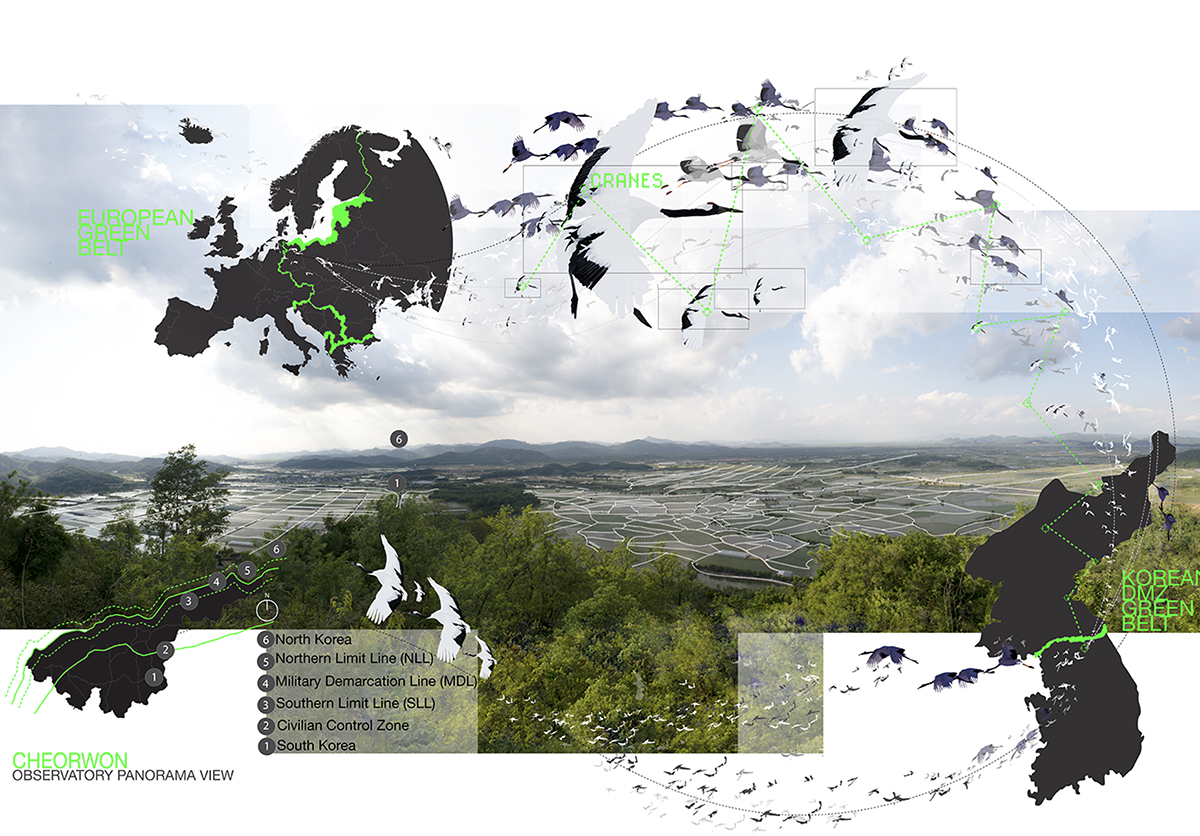Convers(at)ions engages creatively with exchanges over border phenomenology and performativity, it transforms negative spaces such as military demarcations and borders by adopting a ‘more-than-human’ perspective and taps into the potential of nature and environmental conservation activities.
Research @ Korean Demilitarized Zone (DMZ) & European Green Belt (EGB), Berlin & Seoul, October 2019~2023
Multispecies Viewpoint
By leaving a human-centred approach that focuses on human history with its hostilities and controversies and by figuratively adopting a multispecies-viewpoint, the project promotes and advances a dialogue where creative processes foster the exchange of practices, visions and tools.
By concentrating on nature’s timekeeping, on the passing of time expressed by the pristine vegetation, by thriving wildlife and by the spontaneous growth of rare plants, 20th century conflicts are put in a different perspective.
Although the world is becoming increasingly, connected, it is necessary to acknowledge that contemporary society – and globalisation, itself – are characterised by borders. And that’s where conversations and dialogue need to unfold.
On the one hand, conversations need to root deep and spring from controversial border spaces. On the other hand, to overcome impasse and bring in fresh perspectives, conversations need to activate and engage a global outreach, involving remote, unanticipated audiences.
Hybrid Space Lab’s Convers(at)ions addresses the need to foster and promote dialogue along physical and symbolic borders, to make dialogue happen on those borders and envision ways forward, beyond impasse and stasis.
Relying on versatile, light-weight media infrastructure that can be easily driven, ridden, transported or reassembled along and across border spaces and nature reserves, Convers(at)ions combines their resignification through artistic and cultural practices and the need to promote new ways to conduct dialogues.
The Convers(at)ions project curated by Hybrid Space Lab builds on case studies along the Korean DMZ and the European Green Belt.
Convers(at)tions invites and hosts creative trans-disciplinary dialogue on the conversion potential of the Demilitarized Zone in South Korea and the European Green Belt, looking at the role nature and environmental conservation activity can play in transforming negative spaces such as military demarcations and borders.
Established in 1953, at the suspension of the Korean War, the Demilitarized Zone (DMZ) is a buffering zone between the Democratic People’s Republic of Korea (DPRK) in the North and the Republic of Korea (ROK) in the South. A 250 km long and 4 km wide land strip from the East Sea to the Yellow Sea, it has since been a no man’s land. Almost entirely untouched by human activity for more than 65 years, nature at the DMZ was allowed to thrive undisturbed, fostering the reproduction of endangered species and rare plants, transforming a negative space into a luscious ecosystem.
The European Green Belt (EGB) runs for more than 12,500 km along the former Iron Curtain which divided the continent for nearly 40 years after World War II, from the Barents Sea to Black Sea and Adriatic Sea. A place of historical memory and high symbolic value, this ecological network is rich with the wide variety of European landscapes, as nature was let reclaim and shape this historical border.

Can an eco-conscious creativity help overgrow 20th century lines of conflict?
How can nature monuments on (former) militarized borders facilitate dialogue?
How can nature monuments on (former) militarized borders facilitate dialogue?
related PROJECTS